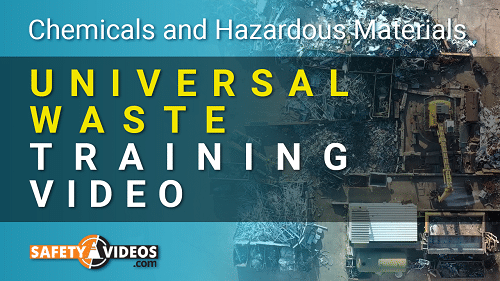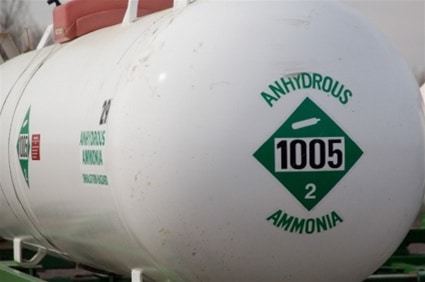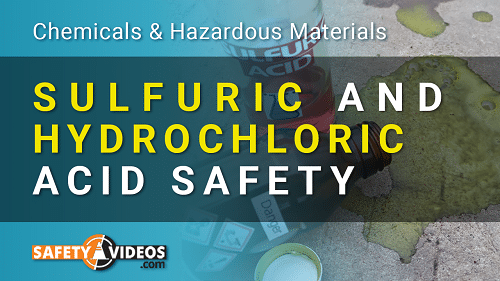Universal Waste Training [Complete Video Kit]
$239

Do your employees need training on the disposal of Hazardous Waste? This Universal Waste Training Video can help educate your employees on how to deal with, identify and dispose of Universal Waste within the confined of the EPA mandate. Although this type of waste is less regulated than other hazardous waste, it is still important to handle it and dispose of it properly.
This Universal Waste training covers the following:
- How does universal waste differ from other hazardous waste?
- What are the 5 most common items that are considered to be “universal waste”:
- Pesticides
- Aerosol Cans
- Equipment that contains mercury
- Batteries
- Light bulbs
- What are the 4 types of companies that ship, store or transport these Universal Waste products:
- Small quantity handlers
- Large quantity handlers
- Universal waste transporters
- Universal waste destination facilities
- What is the role of a Universal Waste Handler? (These are the companies that take in and process the discarded waste)
- What is a “universal waste generator”? (These are the people or businesses that create the waste such as used batteries, old light bulbs, etc)
- What is a “Waste Handler” and what role do they play in the process? (These are the companies that take the discarded waste and send it to other handlers like recycling facilities or disposal facilities)
- How does the EPA classify waste handlers? (Small quality handles deal with less than 5000 kilograms, large quantity handlers deal with more than 5000 kilograms and both are allowed to store these materials for up to a year)
Additional Topics In This Universal Waste Training:
- How must universal waste be transported according to the Department of Transportation? (All shipping regulations of the DOT must be followed including labeling, packaging, marking, proper placards, and shipping papers in order to lawfully transport the waste)
- How to handle batteries meant that have been disposed of including storing the batteries in leak proof containers, sorting of the batteries, discharging them, or regenerate used batteries)
- When handling batteries how can you prevent short circuiting? (You could place tape over the battery terminals, packing the batteries so the terminals don’t come in contact with each other, or discharging the batteries)
- What are the proper labels for batteries that have been disposed of? (There are 3 possible labels 1) Universal Waste – Battery 2) Waste Batteries or 3) Used Batteries)
- How do you handle batteries that are leaking and what precautions should you take in handling them?
- What is the proper way to process pesticides that have been disposed of?
- How to handle a spill of pesticide and how to contain the spill and any environmental damage that might occur
- How to handle equipment that contains mercury or ampules containing mercury
- How to properly label waste that contains mercury
- How to clean up a mercury spill
- What are the types of lamps that the EPA classifies as Universal Waste?
- High intensity discharge bulbs
- Mercury vapor bulbs
- Metal halide bulbs
- High pressure sodium bulbs
- Neon light bulbs
- What are the special considerations when handling aerosol cans that have been disposed of?
- How can a universal waste handler treat an aerosol can so that it can be recycled?
- What is the proper PPE that is necessary when treating aerosol cans?
- and much more….
If your company handles Universal Waste then your employees need training on how to safely deal with these hazardous materials. This Universal Waste Training Video will put your employees on the right track and give them the education they need. Available as an English or Spanish-speaking DVD or on USB stick.





